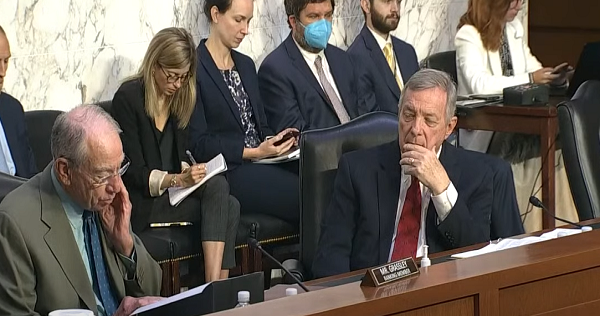
The prevarications of Elon Musk jabbing and juking at purchasing a digital empire in exposing the prevalence of fake accounts and bots will be in the shadows of a Senate Judiciary Committee hearing the testimony of an “ethical” hacker.
Accusations from adept software wizard and whistleblower Zatko over Twitter’s apparent reckless handling of platform security and sensitive data will highlight an intense and heated soiree in the nation’s capital, as private citizens pursue the nearly impossible and unrelenting task of holding big tech accountable. Findings revealed during the dialogue with elected officials spearheaded by Illinois Democrat Dick Durbin, are certain to have vast ramifications on the status of the complicated lover’s quarrel between the prodigious social media network and Musk.
Zatko, who began investigating and testing the quality of electronic security systems along with a group of other coders in the 1990’s, authored an 84 page complaint describing the indiscretions and oversights by company in allowing nefarious hackers to loopholes to exploit the the social network’s servers and internal file storage. He will make his second appearance over the last 24 years in front of Congress, as the merits of government intervention and regulation within the tech realm will certainly be weighed in creating a potentially awkward and unethical duality smeared with a tedious layer of conflict of interest.
The interlude along the Potomac between oblivious politicians and a high functioning security professional has the potential to pierce the ether of insanity, by indirectly providing government with a window to lurk within social media, with all the subtlety the North Korean cheerleading team spreading propaganda at the Winter Olympics. With major credit card companies taking extreme measures to track gun retailers and buyers earlier in the week, oppressive bureaucracy is the theme of late Summer, as the crucial midterm elections will probably reengineer Biden into a lame duck. Couple that with the Twitter board decision to officially approve the corporation’s sale to Musk, the excitement of the National Football League has nothing on the intriguing ideological atmosphere and complex relationships of trillion dollar tech and governmental suppression.
While Musk’s massive ego demands his cementing of another trendsetting influence in reshaping social media, the federal government’s potential access to information stored within digital communities remains a concern. Between the complicated series of grants and subsidies awarded to Twitter and F***book, how much latitude do certain federal agencies have to request that the companies surrender specific data? As both corporations are publicly traded private entities, there is certainly no guarantee of accountability, as brought forth by Zatko. The irony is that while the elected officials are conducting a ceremonial probe as to the level of integrity in securing information, the same individuals can plausibly demand an audit for similar data to target individual users. While large government is not inherently nefarious, the presence of various agendas can lead to corruption as victims are created as part of the cause.
China is the standard for a totalitarian regime utilizing social media to pry inside the minds of citizens/slaves, and it should not be assumed that Washington, even with the existence of the Constitution perpetually embraces fundamental freedoms. History has shown that periodic lapses in judgement have vast consequences.